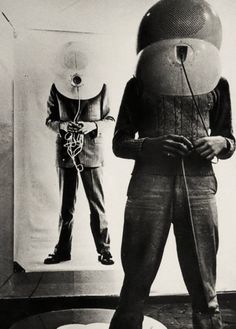Following up on the post about Virtual Reality being utilized to treat PTSD and other disorders, here’s a passage from a 52 Insights Magazine interview with San Francisco-based neuroscientist Adam Gazzaley, who’s working on the bleeding edge of video-game therapy. The doctor wants to use the medium to exploit the plasticity of the brain and “retrain” troubled minds. Of course, the potential for the abuse of such tools in the hands of terrorists, sects or authoritarian states is pretty obvious, though those entities have done fairly well without them.
An excerpt:
The Insight:
So what will it look like, say 30 years from now? Would there be something that you can go to your doctor and get or is there something you can go to a healthcare practitioner and talk to about?
Adam Gazzaley:
I would hope that this would be in the next 4 years; this is the immediate future. We’ll start seeing a different class of medicine, what I would call a ‘digital medicine’ that builds on experience and interactivity, being part of what doctors feel comfortable prescribing. I would hope that future is within the next 5 years.
The Insight:
You’re talking about the games specifically?
Adam Gazzaley:
Yes. …
The Insight:
Because you work so deeply in the core of the brain, has there ever been a discussion with you around tackling mental illness? I know that sits a bit on the periphery of what you do, but you do work within multitasking, focus and attention, so I wondered if that was part of what you do?
Adam Gazzaley:
Yeah, that’s pretty much what our main objectives are. If we could use our knowledge of the system to create a relationship through interactivity and the other technologies I’ve described to you. And to improve the function and to minimise the limitation, we think that it could have great impact in the mental health world. That’s a conversation I have daily with the scientists that are in the psychiatric or neurological domain; how these tools could be part of the medicine they are using in the near future.
The Insight:
Could you give us an idea of how that discussion looks, what would be the implementation in an ideal world?
Adam Gazzaley:
The most concrete one would be where a doctor would feel comfortable pulling out a prescription pad and writing down an iPad game for 1 month with the data streaming into their office during each gameplay, with or without a medication as a drug along side it. I think that would be an exciting future, to understand how these worlds will interact with each other; will they be prescribed together or independently? Would you start with the game because it had no side-effects then come in with a drug if needed? All of these are unknowns but very exciting.•
Tags: Adam Gazzaley

